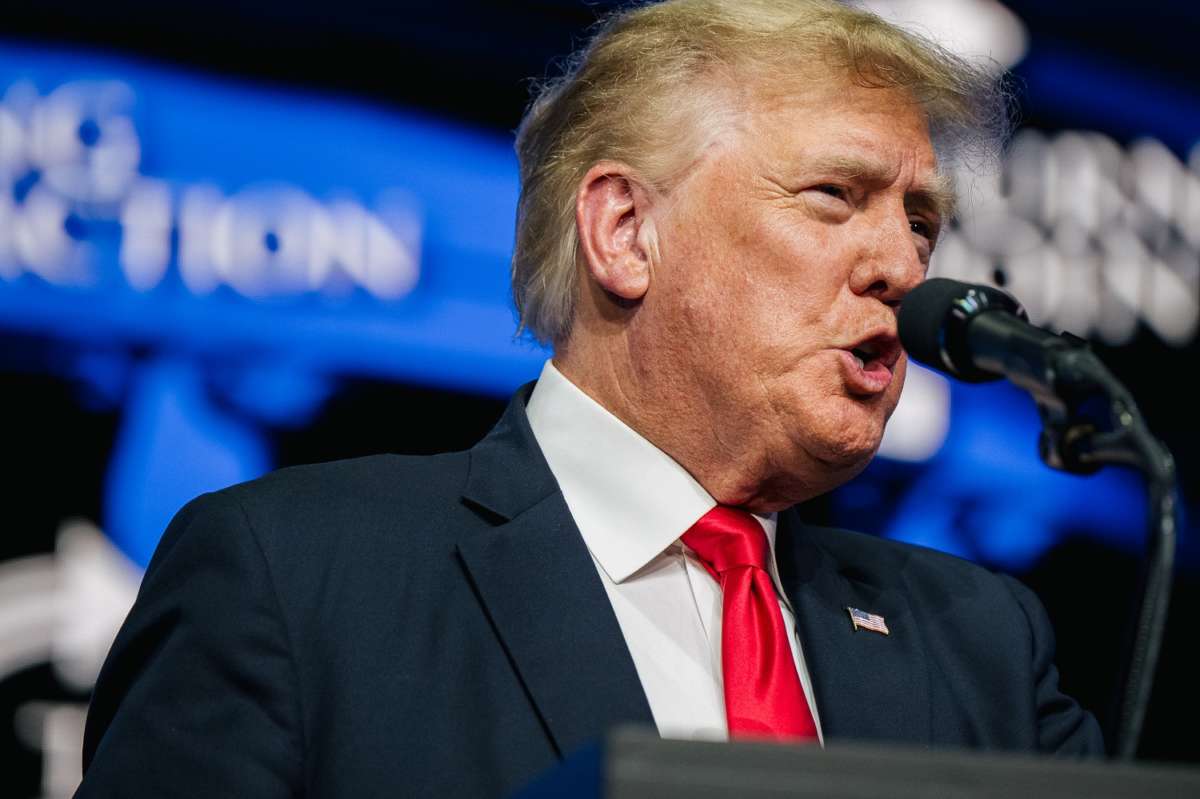Most Americans don’t think Donald Trump running for president again in 2024 would be a good thing for the country, a new poll from Quinnipiac University reveals.
The survey, which asked a number of questions about elections in 2022 and 2024, revealed challenges and opportunities that both political parties will face in those years relating to voters’ preferences on what type of candidates they want to elect.
On the question of the former president’s potential run in 2024, 49 percent of respondents in the poll said they believe Trump will indeed make a run for the nation’s top office that year, while only 39 percent said he would not.
On whether his candidacy would be good for the country, only 32 percent said another campaign by Trump to become president would be beneficial. Conversely, 60 percent of Americans say that Trump running for president again would be bad for the country, according to the poll.
The former president has not officially indicated whether he will run in 2024 or not, but has made several comments in public hinting that he will.
“I do know my answer but I can’t reveal it yet because that has to do with campaign financing and everything else. But I absolutely know my answer,” Trump said when asked if he was running during a Fox News interview last month. “We’re going to do very well and people are going to be very happy.”
If Trump does decide to run, he would have high chances of being picked as the Republican Party nominee, as 73 percent of GOP-leaning respondents in the poll viewed his running again as being a good thing.
Regarding the midterm elections that are set to commence next year, those taking part in the poll had mixed views about who they wanted to see win. Asked who should run the House of Representatives, 45 percent said they preferred to have Democrats retain control while 42 percent said they wanted Republicans to lead in the House.
But the polling results also suggested that Democrats have a possible path to winning in 2022 if they pushed more progressive and ambitious legislation, while simultaneously linking their opponents to Trump.
Backing for either political party was well below 50 percent in the Quinnipiac University poll, with only 38 percent of respondents saying they approved of Democrats in Congress, and just 26 percent saying the same about Republicans. But on policies that Democrats are pushing — including a $3.5 trillion spending bill that contains aspects of President Joe Biden’s American Families Plan and American Jobs Plan — there was overwhelming support from voters in the survey, with 62 percent saying they wanted that bill to be made into law and only 32 percent saying they opposed it.
Progressive commentators, noting that the party of the president traditionally performs poorly in their first midterm elections race, have suggested that Democrats need to continue promoting big ideas in order to defy historical precedent and win again in 2022.
“Democrats need to follow through on Biden’s working assumption: act big and boldly,” wrote The Nation magazine’s editor and publisher Katrina vanden Heuvel in an op-ed for The Washington Post in May. “That means reforms that make a material difference in people’s lives, counter the efforts to suppress the votes, and limit the effect of big money on our elections.”
Vanden Heuvel added that Democrats winning in 2022 “isn’t a question of changing rhetoric or dodging Republican insults, it is about getting big things done.”
Being anti-Trump won’t hurt, either, as the poll indicated that if Trump endorsed a candidate for office, voters would be less likely to support them. A plurality of respondents in the poll, 41 percent, said that a Trump-backed candidate would make them less likely to want to vote for that person, with 37 percent saying his endorsement wouldn’t matter.
For comparison, only 29 percent of respondents said that a candidate endorsed by Biden would make them less likely to vote for a person, with 53 percent saying it’d make no difference.
With the midterms still more than a year away, much can change between now and then that could affect either party’s chances of winning. But this poll suggests that the conventional wisdom, that Democrats are inherently poised to lose seats in the House, may not hold true if Democrats take certain actions and follow certain paths.
Join us in defending the truth before it’s too late
The future of independent journalism is uncertain, and the consequences of losing it are too grave to ignore. To ensure Truthout remains safe, strong, and free, we need to raise $43,000 in the next 6 days. Every dollar raised goes directly toward the costs of producing news you can trust.
Please give what you can — because by supporting us with a tax-deductible donation, you’re not just preserving a source of news, you’re helping to safeguard what’s left of our democracy.
